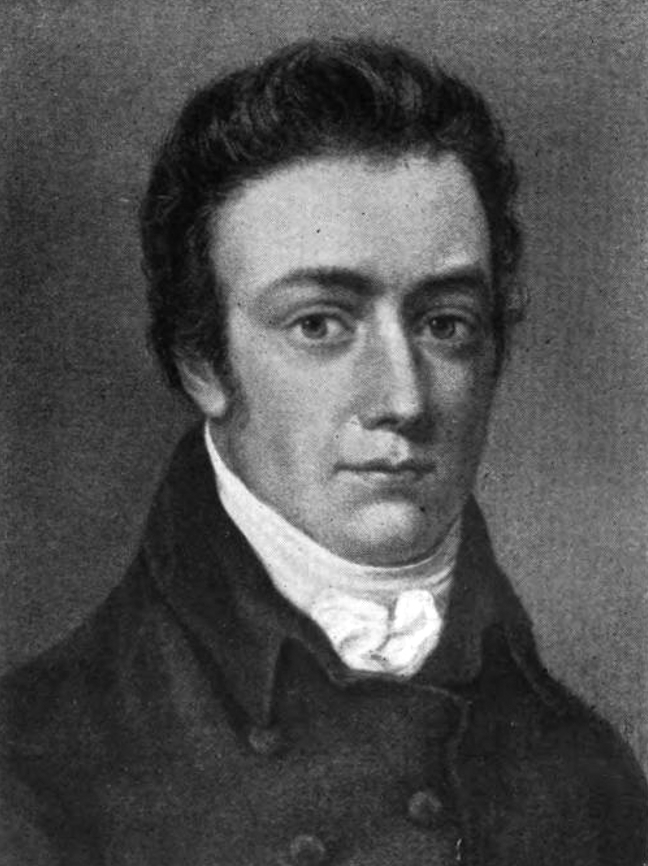
Romantic epistemology
Romantic epistemology emerged from the Romantic challenge to both the static, materialist views of the Enlightenment (Hobbes) and the contrary idealist stream (Hume) when it came to studying life. Romanticism needed to develop a new theory of knowledge that went beyond the method of inertial science, derived from the study of inert nature (natura naturata), to encompass vital nature (natura naturans). Samuel Taylor Coleridge was at the core of the development of the new approach, both in terms of art and the 'science of knowledge' itself (epistemology). Coleridge's ideas regarding the philosophy of science involved Romantic science in general, but Romantic medicine in particular, as it was essentially a philosophy of the science(s) of life.
Intellect[edit]
The intellect is "the faculty of suiting measures to circumstances," or "the faculty judging according to sense."[4] Intellect is linked initially to fancy, such that their functioning forms a law by which man "is impelled to abstract the changes and outward relations of matter and to arrange them under the form of causes and effects."[4] This law is necessary for man's awareness and freedom, but if not conjoined with a new participative capacity (the Goethean Gemüt) would "prevent or greatly endanger man's development and progression."[4] The intellect in man, as contrasted with animals, is the ability not only to obey rules, but to create them and to know what the term "rule" means. It is the possibility of sense experience. Sensation is "already intelligence in process of constructing itself."[4] Thus, "intelligence is a self-development and sensation itself is but vision nascent, not the cause of intelligence, but intelligence itself revealed as an earlier power in the process of self-construction" working on the sense-data to provide names of objects and the relationships of their outer forms in terms of cause and effect (what Suzanne Langer terms 'figuration').
Romantic cognosis[edit]
At the core of the idea of romanticism is romantic cognosis, or 'co-gnosis', the dynamic interplay of masculine and feminine forces and energies in the mind and imagination, involving a dyadic unit of consciousness right from the beginning (Genesis: 'male and female made he them'). Coleridge speaks of "the feminine mind and imagination," and provides the polaric example of the two giants of English literature, Shakespeare ("darts himself forth and passes into all the forms of human character and passion") and Milton ("attracts all forms and things to himself" which "shape themselves anew" in him). For Coleridge, "imagination is both active and passive", that is, masculine and feminine in nature. He also provides a similar polarity between the essentially passive primary imagination, that (spontaneously, reactively) configures sensory experience ("a repetition in the finite mind of the eternal act of creation in the infinite I AM"), and the active secondary imagination that 'dissolves, diffuses and dissipates in order to re-create' via the higher state of mind and consciousness. Coleridge also distinguished between the poetic imagination, which is essentially projective, and the philosophic imagination, which is essentially pro-active ("the scared power of self-intuition, [which] can interpret and understand the symbols" inherent in the world around us).
For Coleridge, the life which is in each of us is in other people and things out there as well, allowing for communication between Mother nature and human nature, as well as between individuals. At the level of mind, ideas are 'mysterious powers, living, seminal, formative' and "essentially one with the germinal causes in nature. Goethe's identification and elaboration of the Gemüt as the organ of mind for participatiing the living essence or Wesen of nature, whether in Mother or human nature, is what Coleridge termed our 'inmost mind'.
In addition to the dynamic polarity between masculine and feminine principles of mind and consciousness, Coleridge identified "the pleasure principle" as the "chief principle" and "great spring of activity of our minds", from which "the sexual appetence and all the passions connected with it take their origin.